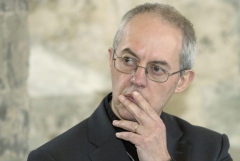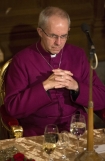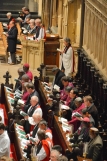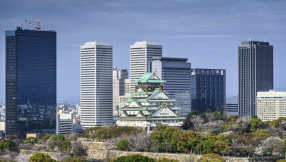The Anglican Primates meeting in Canterbury may be on the brink of failure, observers say.
The heads of 38 Anglican provinces around the world have gathered this week to try to preserve their communion in the face of entrenched differences around attitudes to homosexuality. North American episcopalians have taken a liberal line, while Anglicans in Africa and the powerful GAFCON – Global Anglican Future – conservative bloc have led opposition to the acceptance of same-sex relationships.
The Archbishop of Canterbury, Justin Welby, is attempting to stave off a formal split with a more federal model similar to that adopted by the Lutheran churches of northern Europe and Scandinavia.
However, the mood at last night's service of worship at Canterbury Cathedral indicated a shift in tone from the optimism of the previous day. According to Anglican Ink (AI), up to a half of the delegates were absent while the mood among those who attended was sombre. AI relayed unconfirmed reports that some primates met yesterday evening to discus whether they would walk out of this morning's session or stay and insist on reforms.
It also reported resistance to the Archbishop of Canterbury's use of the so-called Delphi Method of debate, which involves participants breaking into small groups to discuss set questions. Some primates are said to have regarded this as a "divide and conquer" approach and wanted to discuss issues in plenary sessions.
Archbishop Welby's task has been complicated by a public letter signed by senior clergy urging the Church to repent over its discrimination against gay and lesbian Christians.
Ahead of the primates' meeting he told Radio 4's Today programme: "A schism would not be a disaster... God is bigger than our failures. But it would be a failure. It would not be good if the Church is unable to set an example to the world of showing how we can love one another and disagree profoundly because we are brought together by Jesus Christ not by our own choice. This isn't a form of club or a political party. It is something done by God."
















